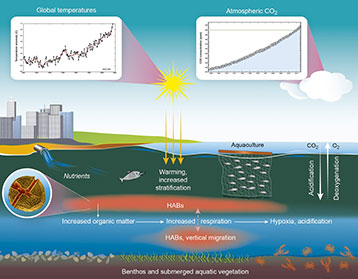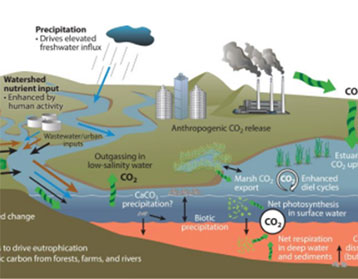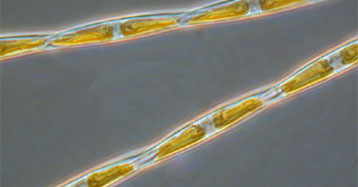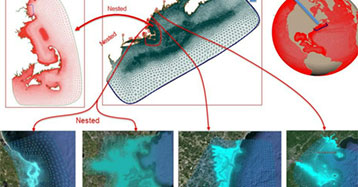Coastal Ocean Acidification
Multi-Stressor Research
Climate change is exacerbating existing environmental stressors—such as hypoxia, harmful algal blooms, and ocean acidification—through changes to the fundamental drivers of ecosystems—temperature, precipitation, seasonal cycles, and biogeochemistry. These changes impact processes—such as oxygen, nutrient and carbon cycling, respiration rates, stratification, ocean circulation, upwelling, and mixing—with implications for the prevalence, severity, and duration of harmful algal blooms, ocean acidification, and hypoxic events. Understanding how these multiple stressors interact and subsequently impact species, habitat assemblages, and ecosystems is critical for place-based management.

Workshop to advance national and regional research on ocean acidification and harmful algal blooms as co-stressors in coastal ecosystems.

NOAA funded projects addressing the need to understand interactions between ocean acidification and HABs and their impacts on coastal ecosystems, communities, and economies.
Ocean Acidification Impacts on Coastal Ecosystems
Ocean Acidification Partnerships
We partner with the NOAA Ocean Acidification Program to fund research on the impacts of ocean acidification to
coastal ecosystems.
Take a Closer Look

Credit: Griffith & Gobler, 2020


Credit Cai et al., 2021.






